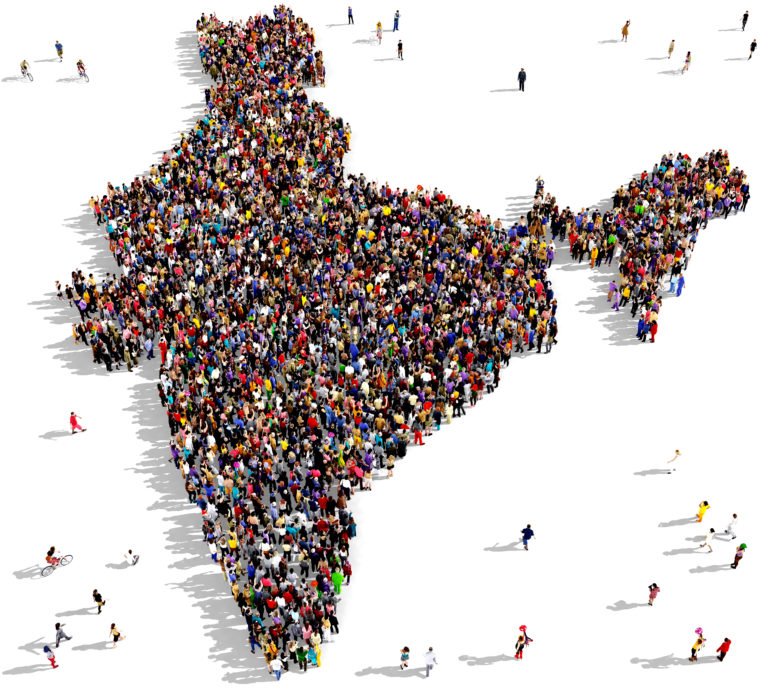Published by the Ministry of Law and Justice on 7th April 2017, the new Mental Health Care Act of India came into operation. The revised act received the assent of our President on the same day and after a lot of delay and struggle, finally came into existence.
As published – Mental Health Care Act, 2017 is “An Act to provide for mental health care and services for persons with mental illness and to protect, promote and fulfil the rights of such persons during delivery of mental health care and services and for matters connected therewith or incidental thereto.”
The previous Mental Health Care Act of India dated to 1987, though covered a lot of areas, still lacked understanding of the topic of ‘Mental Health’ as a whole. The biggest change between the two acts, that was greatly welcomed was the ‘Decriminalization of Suicide Attempters’. Speaking from a logical perspective, an individual would be greatly troubled if he took the step to end his life, and if by chance he survives, getting criminalized in form would not help him. He needs mental health care and psychological care and not police intervention.
Another major change from the earlier act is that the new Mental Health Care Act of India, 2017 recognizes the human Right to Dignity. Mental Health Care Act, 1987 had a provision for involuntary institutionalization of patients for a 90-day period. While the new Mental Health Care Act, 2017 of India recognizes an individual’s’ right to live with dignity and to choose what type of treatment they prefer and also equal treatment amongst all.
Highlights from India’s Mental Health Care Act, 2017
Chapter 2 under the act aims to understand ‘MENTAL ILLNESS AND CAPACITY TO MAKE MENTAL HEALTH CARE AND TREATMENT DECISIONS’ and following is an extract from the same chapter.
- No person or authority shall classify a person as a person with mental illness, except for purposes directly relating to the treatment of the mental illness or in other matters as covered under this Act or any other law for the time being in force.
- Mental illness of a person shall not be determined on the basis of,–– (a) political, economic or social status or membership of a cultural, racial or religious group, or for any other reason not directly relevant to mental health status of the person; (b) non-conformity with moral, social, cultural, work or political values or religious beliefs prevailing in a person’s community.
- Past treatment or hospitalisation in a mental health establishment though relevant, shall not by itself justify any present or future determination of the person’s mental illness. (5) The determination of a person’s mental illness shall alone not imply or be taken to mean that the person is of unsound mind unless he has been declared as such by a competent court.
In contrast to the previous act, the Mental Health Care Act 1987, this act really tried to curb the stigma around this sensitive topic and stood well with the expectations. In the past 20 years, a lot had changed and this act has matured in its outlook. It clearly mentions that an individual can be classified as an individual with a mental illness only for the reasons listed above and none else.
Another chapter that needs a special mention is Chapter 3 – RIGHTS OF PERSONS WITH MENTAL ILLNESS.
A number of changes were welcomed from the earlier act under this chapter that successfully met our expectations.
For example –
- provide treatment in a manner, which supports persons with mental illness to live in the community and with their families;
- ensure that the long term care in a mental health establishment for treatment of mental illness shall be used only in exceptional circumstances, for as short a duration as possible, and only as a last resort when appropriate community-based treatment has been tried and shown to have failed;
- ensure that no person with mental illness (including children and older persons) shall be required to travel long distances to access mental health services and such services shall be available close to a place where a person with mental illness resides;
- ensure that as a minimum, mental health services run or funded by Government shall be available in each district;
- Ensure that persons with mental illness living below the poverty line or who are destitute or homeless will be entitled to mental health treatment and services free of any charge and at no financial cost at all mental health establishments run or funded by the Government.
Under Chapter 4, NOMINATED REPRESENTATIVE, another major change was observed that was greatly in sync with our expectations.
According to this chapter, every individual will have the right to clearly acknowledge and specify how he would like to be treated for mental illness. The individual will also have the right to specify who will be the person responsible for taking decisions with regard to the treatment, his admission into a hospital, the use of electro-convulsive therapy, etc.
This addition was a welcome change as many a time in the past, patients have been exploited by the hospitals, people close to them, or simply by ignorance of the mental health care set up. By getting to appoint another individual as the decision-maker relieves the patient himself as well as the mental health professional who because of this appointment shall not be held liable for any unforeseen consequences during the course of treatment.
Under the Mental Health Care Bill, the punishment for not abiding by any of the provisions will cause up to six months in prison or Rs 10,000 fine or both. Repeat offenders can face up to two years in jail or a fine between Rs 50,000 to Rs 5 lakh or both.
However, in spite of so many pluses, the new Mental Health Care Act of India, 2017, also did not meet one of the expectations –
1. BUDGET. Most developed countries spend 10-12% on healthcare whereas India only spends about 1-2%. Out of this, only 0.06 % is allocated on mental healthcare which is really less when compared to the population of our country. The expectation was to have a better budget that allows the mental health sector to grow in the entire country – however, this wish remains a wish.
2. Another expectation that this act did not meet was the inclusion of ‘Mental Retardation’. Section 2 (r) of this Act defines the term ‘mental illness’ as “a substantial disorder of thinking, which grossly impairs judgment, behaviour, capacity to recognize reality or ability to meet the ordinary demands of life” and also includes mental conditions associated with the abuse of alcohol and drugs. As we can see, there is no mention of mental retardation and the rights that people with special needs should also have.
Overall, this new Mental Health Care Act of India issued in the year 2017 is a ray of sunshine when compared to the earlier act that seemed like an ever raining day. There is still a long way to go to make mental health an important and stigma-free area in our country. This Act is the first step towards it.



